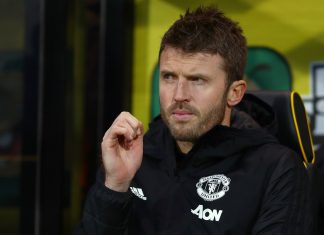“We used experience last year as the reason, this year it’s the defence.”
Arsenal are attempting to create a team built over years with youngsters playing a certain style. Passing, moving, creating space, looking to exploit that space, always probing for gaps. It is the most effective system ever known in football. It is the style practised by the Ajax side which dominated Europe in the 1970s, and the Dutch side which fortuitously did not win the World Cup in 1974 or ’78.
Johann Cruyff, the embodiment and leader of those two teams, was appointed manager of Barcelona in 1988, ushering in a superb six years of success, and instituting the same total football system that his Ajax and Holland teams used.
As a result, 15 years later, Barcelona’s youth system has proved its worth, and Cruyff’s ideas are now dominating world football. Barcelona’s Dutch style has made them the world’s best team, and Spain the world’s undisputedly best national side.
This is the system Arsenal are trying to emulate, albeit unsuccessfully. But it is not the idea, the reliance on youth and unrelenting desire to keep passing that is Arsenal’s flaw. The system is arguably the best football has ever seen, demonstrated by the best sides it has ever seen. Arsenal’s problem is the players it has. They are imbued with some of the vital skills required for this system; technique, good passing ability, creativity. But as a collective they lack one of the vital components of the Dutch and now Spanish system. Intelligence.
It is a harsh indictment to place on the heads of players like Samir Nasri or Cesc Fabregas, undoubtedly players who think two, three or four steps ahead of their opponents. They have the intelligence to play this way. But Abou Diaby, Emmanuel Eboué, Sebastien Squillaci? Manuel Almunia? Denilson? Nicklas Bendtner? These are players Arsenal have become reliant upon as their perpetually problematic injury list poses a permanent obstacle to their hopes of lifting silverware.
The Dutch system of total football requires players to pass the ball continually, at pace, and constantly moving in order to create the space in which to exploit. Arsenal are very good at this part of their system. Their players move at speed, pass at speed, and they create space that teams like Ajax and Barcelona so brilliantly exploited.
But often, what happens with Arsenal, is that as their players move, and as space opens up for a defence splitting pass to be made, something will go wrong. Abou Diaby, as he often does, will take a second too long to make the pass. Or Bendtner won’t make the correct run, or he’ll try to shoot instead of passing to the player in space.
Yet consider the Arsenal teams which were so successful in 1998, 2002 and 2004. Possibly the most important player in these teams was Dennis Bergkamp. He played more frequently in those seasons than others, and was more influential. And most importantly, he recognised where space would appear before it would be created. Some of the current Arsenal side do not even notice space opening up as it is created.
This is where Arsenal have gone wrong. Their whole system relies not just on the creation of space, which they are excellent at, but the exploitation of space – the point of total football is to find the man in space who can hurt the opposition as quickly as possible – which they are actually, surprisingly perhaps, very poor at when they aren’t at full strength. The likes of Robin van Persie and Fabregas know how to exploit space, when to make a run. Because they possess that most crucial attribute – intelligence. The ‘Cruyff way’ is based to a remarkable extent on an individual’s ability to problem solve. It relies on players analysing the complex patterns which constantly change on the pitch, and finding a way to create and then to take advantage of space. Players like Diaby, Eboué and Bendtner are incapable of this. You can see as they play, that they do not think quickly enough to exploit space. Watch an Arsenal game, and 10-20 opportunities to put someone clean through on goal will be missed because their players take too long to notice the opportunity.
Yes, the goalkeeping situation is a mess. Being in a position where you are reliant on Manuel Almunia is a mistake of monumental proportions. And the defence is not entirely convincing, particularly when Squillaci plays. And there is a lack of depth in defensive midfield when Alex Song is absent. But all teams are guilty of mistakes like this. Man Utd have a chronic lack of creativity in midfield. Chelsea have traditionally lacked creativity, yet have been successful.
There are few teams, possibly with the exception of Ajax/Holland and Barcelona/Spain, without flaws. But if Arsenal took advantage of the numerous opportunities to set a player clean through on goal, their numerous defensive frailties would be obsolete. They would be an irrelevance. And their mistakes would also be less frequent, for the simple reason that intelligent players are better at retaining possession, as Barcelona prove. Therefore the opposition simply have less opportunity to force mistakes.
Arsene Wenger’s seemingly dogmatic attempt to create a team full of youngsters playing without a plan ‘B’ for their passing game is not the problem. Barcelona, by their admission (as well as pride) have no plan ‘B’. There is no need for a plan ‘B’ when the best plan conceived in football history is executed properly. Arsenal’s failure rests on this simple issue; intelligence, and the ability to recognise the opening up of space as soon as it appears.







